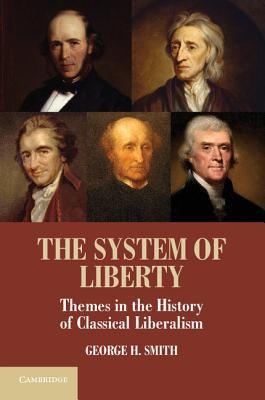
- We will send in 10–14 business days.
- Author: George H Smith
- Publisher: Cambridge University Press
- ISBN-10: 1107005078
- ISBN-13: 9781107005075
- Format: 15.8 x 23.1 x 1.8 cm, kieti viršeliai
- Language: English
- SAVE -10% with code: EXTRA
Reviews
Description
Liberal individualism, or "classical liberalism" as it is often called, refers to a political philosophy in which liberty plays the central role. This book demonstrates a conceptual unity within the manifestations of classical liberalism by tracing the history of several interrelated and reinforcing themes. Concepts such as order, justice, rights, and freedom have imparted unity to this diverse political ideology by integrating context and meaning. However, they have also sparked conflict, as classical liberals split on a number of issues, such as legitimate exceptions to the "presumption of liberty," the meaning of "the public good," natural rights versus utilitarianism, the role of the state in education, and the rights of resistance and revolution. This book explores these conflicts and their implications for contemporary liberal and libertarian thought.
EXTRA 10 % discount with code: EXTRA
The promotion ends in 22d.05:09:45
The discount code is valid when purchasing from 10 €. Discounts do not stack.
- Author: George H Smith
- Publisher: Cambridge University Press
- ISBN-10: 1107005078
- ISBN-13: 9781107005075
- Format: 15.8 x 23.1 x 1.8 cm, kieti viršeliai
- Language: English English
Liberal individualism, or "classical liberalism" as it is often called, refers to a political philosophy in which liberty plays the central role. This book demonstrates a conceptual unity within the manifestations of classical liberalism by tracing the history of several interrelated and reinforcing themes. Concepts such as order, justice, rights, and freedom have imparted unity to this diverse political ideology by integrating context and meaning. However, they have also sparked conflict, as classical liberals split on a number of issues, such as legitimate exceptions to the "presumption of liberty," the meaning of "the public good," natural rights versus utilitarianism, the role of the state in education, and the rights of resistance and revolution. This book explores these conflicts and their implications for contemporary liberal and libertarian thought.


Reviews